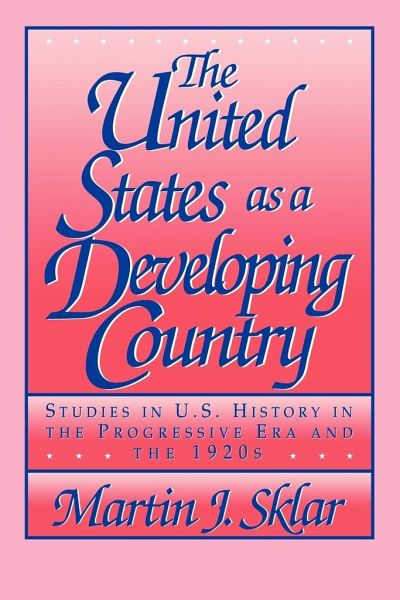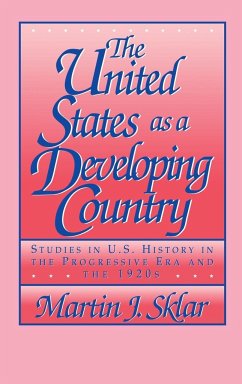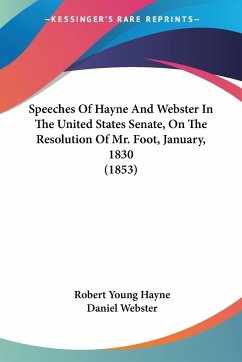
The United States as a Developing Country
Studies in U.S. History in the Progressive Era and the 1920s

PAYBACK Punkte
16 °P sammeln!
The history of the United States is in crucial respects the history of a developing country, not only in its transition from agricultural and commercial colonies to an industrial nation, but in modern times and the foreseeable future as well. The seven studies are primarily concerned with the United States as a developing country in the early twentieth century, evolving from a competitive stage of capitalism to a corporate stage, and from an industrial to a 'postindustrial' society. The chapters treat the emergence and early phases of corporate capitalism and their implications for domestic af...
The history of the United States is in crucial respects the history of a developing country, not only in its transition from agricultural and commercial colonies to an industrial nation, but in modern times and the foreseeable future as well. The seven studies are primarily concerned with the United States as a developing country in the early twentieth century, evolving from a competitive stage of capitalism to a corporate stage, and from an industrial to a 'postindustrial' society. The chapters treat the emergence and early phases of corporate capitalism and their implications for domestic affairs and foreign relations, the origins and character of corporate liberalism, the pivotal role of Woodrow Wilson in these areas, and the emergence of postindustrial trends. They also explore some critical linkages among economic, political, and cultural developments, in tracing parallels among Henry Adams in the Progressive Era, the 'Young Intellectuals' of the twenties, and the New Left in the sixties. The studies also address broader interpretive and philosophical questions such as theory and factuality, periodization and historiography, mode of production and social change, as well as the interplay in human affairs of the transhistorical and the historical, the artistic and the political, contingency and determinism, freedom and necessity, and the intermixture of capitalism, socialism, and liberalism in the making of modern US society.
Table of contents:
Preface; 1. Periodization and historiography: the United States considered as a developing country; 2. Studying American political development in the Progressive Era, 1890s-1916; 3. Dollar Diplomacy according to Dollar Diplomats: American development and world development; 4. Woodrow Wilson and the developmental imperatives of modern US liberalism; 5. Some political and cultural consequences of the disaccumulation of capital: origins of postindustrial development in the 1920s; 6. Disaffected with development: Henry Adams and the 1960s 'New Left'; 7. The corporate reconstruction of American capitalism: a note on the capitalism-socialism mix in US and world development; Index.
Table of contents:
Preface; 1. Periodization and historiography: the United States considered as a developing country; 2. Studying American political development in the Progressive Era, 1890s-1916; 3. Dollar Diplomacy according to Dollar Diplomats: American development and world development; 4. Woodrow Wilson and the developmental imperatives of modern US liberalism; 5. Some political and cultural consequences of the disaccumulation of capital: origins of postindustrial development in the 1920s; 6. Disaffected with development: Henry Adams and the 1960s 'New Left'; 7. The corporate reconstruction of American capitalism: a note on the capitalism-socialism mix in US and world development; Index.














